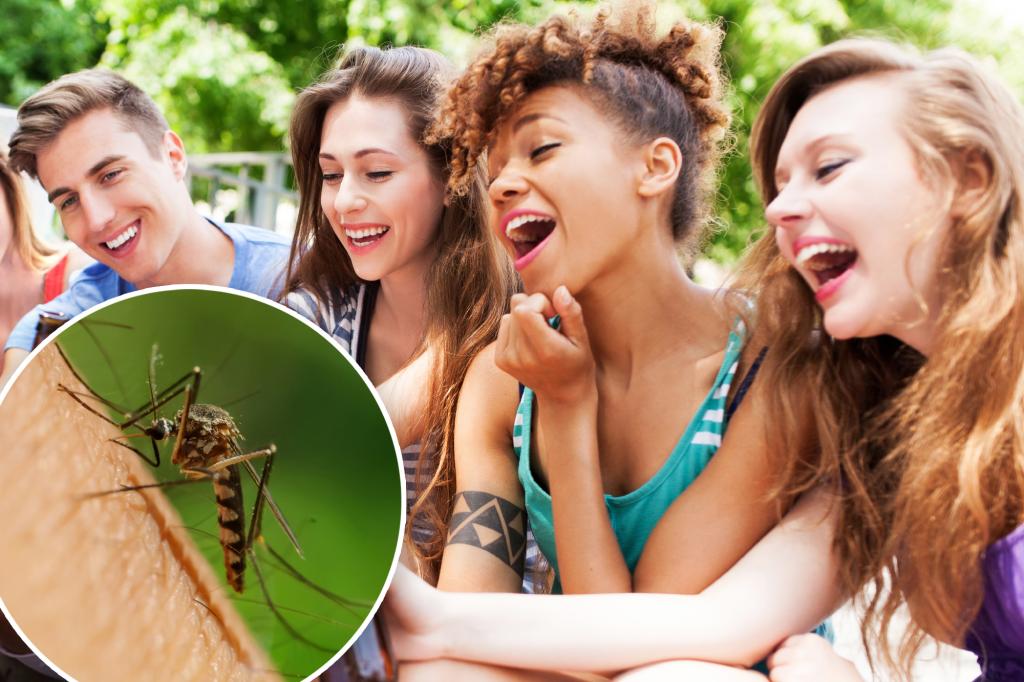Mosquitoes Show a Buzzing Preference for Beer Drinkers and Partygoers
A fascinating study by Dutch scientists has revealed that mosquitoes may be the ultimate party crashers, showing a distinct preference for people who enjoy a few beers. Led by Felix Hol from Radboud University Nijmegen in the Netherlands, researchers set out to solve a question that has plagued humanity during warm summer evenings: why do these bloodthirsty insects seem to target some people more than others? Their findings suggest that our lifestyle choices might be sending irresistible invitations to these unwanted guests. The research team transformed a portion of the annual Lowlands music festival in the Netherlands into an impromptu laboratory, recruiting 500 festival attendees to participate in their experiment. These volunteers answered questions about their personal habits—including diet, hygiene practices, and social behaviors—before participating in a unique test designed to measure mosquito attraction without allowing any actual bites to occur.
The experimental setup was both simple and ingenious: participants placed their arms in specially designed boxes containing female mosquitoes (the only ones that bite humans). These boxes featured small holes that allowed the insects to detect human scent without being able to reach the skin—essentially creating a sensory-only experience for the mosquitoes. Researchers carefully recorded how many mosquitoes landed on each volunteer’s arm and for how long, comparing this attraction to a sugar feeder placed on the opposite side of the enclosure. When matching these behavioral observations against the lifestyle questionnaires, several clear patterns emerged that might make you reconsider your next outdoor social gathering.
The results were striking: beer drinkers proved 1.35 times more attractive to mosquitoes than non-drinkers. This wasn’t the only lifestyle factor that seemed to draw mosquitoes’ attention, however. The research revealed that these insects also showed a stronger attraction to people who had shared a bed with someone the previous night, those who used less sunscreen, and individuals with less frequent showering habits. As the research team succinctly concluded, “Mosquitoes are drawn to those who avoid sunscreen, drink beer, and share their bed. They simply have a taste for the hedonists among us.” This charming if somewhat uncomfortable characterization suggests that our tiny tormentors may be nature’s way of imposing consequences on our more indulgent behaviors.
Interestingly, the attraction doesn’t appear to be to alcohol itself, but rather to the changes in body chemistry and behavior that accompany drinking. Hol explained in a Dutch radio interview that “People who have been drinking alcohol also behave differently, of course. At a festival like Lowlands they might also be dancing more exuberantly, which can also change their body odor.” This observation aligns with previous research indicating that mosquitoes have an extraordinary sense of smell, capable of detecting human scents from as far as 350 feet away. Body odor appears to be the primary attractant, which explains why activities that alter our natural scent—like drinking, sweating from dancing, or skipping showers—might make us more appealing targets for these persistent pests.
The study does come with important limitations that the researchers themselves acknowledge. The participant pool consisted primarily of music festival attendees, who tend to represent a younger and generally healthier demographic than the broader population. This lack of diversity in the sample means that the findings, while intriguing, may not apply universally across different age groups, health conditions, or cultural contexts. To develop a more comprehensive understanding of mosquito preferences, the researchers suggest that future studies would need to include a wider variety of participants from different settings beyond music festivals. This would help determine whether the attraction to beer drinkers and those with certain lifestyle habits remains consistent across various demographic groups.
Despite these limitations, the study offers practical insights for anyone looking to reduce their appeal to mosquitoes during outdoor activities. The findings suggest that moderating alcohol consumption, applying sunscreen regularly, maintaining good personal hygiene with frequent showers, and perhaps being mindful about the natural scent changes that occur from sharing sleeping spaces might all help reduce your attractiveness to these persistent insects. While further research is needed to fully understand the complex relationship between human behaviors and mosquito preferences, this study provides a fascinating glimpse into how our lifestyle choices might be broadcasting an unintentional invitation to these tiny vampires. So the next time you’re enjoying a beer at an outdoor gathering and feel that familiar buzz around your ears, remember that your beverage choice might be making you the most popular target at the party—at least among the mosquito population.


